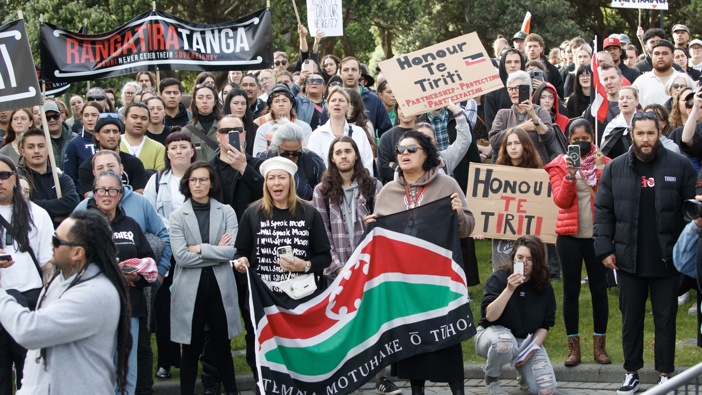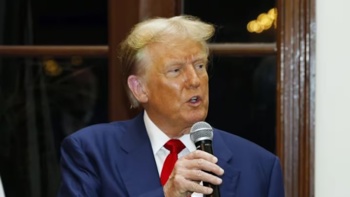Today’s protest action instigated by Te Pāti Māori hasn’t taken long to happen, given the new coalition government was only sworn-in last Monday.
Not that the things being protested against today are major surprises. It was clear before the election that Māori weren’t going to be high on the list of priorities if National and ACT got their way. Despite Christopher Luxon saying that his party is here for all people.
And, yesterday, he was his coalition government is deeply committed to Māori.
So deeply committed that it’s getting rid of the Māori Health Authority. So deeply committed that it’s ditching smokefree changes that, those in the know, say would have made a massive difference - especially in regard to smoking rates among Māori.
And the new government is deeply committed to Māori, even though it thinks we can’t get our heads around names like Waka Kotahi and Te Whatu Ora and so it’s going to ditch all that nonsense and put te reo back in its place. Behind the English names.
So deeply committed to Māori.
I don’t buy it. And Te Pāti Māori doesn’t buy it, either. And that’s why it’s instigated this day of action against proposals to remove references to the Treaty of Waitangi from laws, change the smokefree legislation and make government department names English-first.
This is happening at the same time as one of our leading economists has come out and said that fixing the economy isn’t just about increasing productivity, getting rid of the 90-day trials, selling more stuff overseas. He says national unity is a massive thing.
In fact, he goes further than that. He says the new coalition government's biggest economic priority should be bringing the country together, because division creates economic risk.
This is Cameron Bagrie I’m talking about. He used to be chief economist at ANZ and, these days, he’s lead economist at his own private consultancy. So he knows what he’s on about.
And he’s saying that it’s all very well doing the usual economic management stuff, but it won’t come to much if we are divided. And the timing of what he’s saying is impeccable.
Because, what we’re seeing today - this protest action around the place, one week into the new government’s term - doesn’t look like a unified country to me.
And if those of us who aren’t Māori don’t sit-up and pay attention, and if we don’t listen, then we’re idiots. Because what’s behind today’s protest action is a cultural tsunami. And if those of us who aren’t Māori don’t see that, then more fool us.
Because the people involved in the protest action today aren’t demanding more. They’re just demanding that there isn’t less. They don’t want less progress in reducing smoking rates among Māori. They don’t want less recognition of the Māori language.
So they were out on the streets protesting this morning and people in Auckland were sending in furious text messages because it was taking them a bit longer to get into work.
Which paints a picture of the complete opposite of what Cameron Bagrie says we need if our economy is going to really recover. And I think he's right when he says that, if we really want the economy to fly, we need to be united - not divided.
We need to do whatever we can to reduce the gap between the haves and the have nots. That’s economic unity.
But we also need cultural unity. And that is all the protesters today are asking for.
They’re asking us not to waste time changing government department names. They’re asking us not to open the door to the scourge of smoking to young Māori. They’re asking us not to make the Treaty of Waitangi invisible.
Requests that, as far as I’m concerned, are perfectly reasonable.
Take your Radio, Podcasts and Music with you










